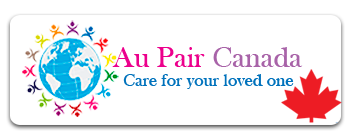How does the au pair program work in Canada?

The au pair program in Canada operates under specific regulations and guidelines set by Immigration, Refugees and Citizenship Canada (IRCC). Here’s an overview of how the program typically works:
- Eligibility Requirements: Both the host family and the au pair must meet certain eligibility criteria to participate in the program. Host families must be Canadian citizens or permanent residents, provide a suitable home environment for the au pair, and demonstrate the ability to financially support the au pair. Au pairs must typically be between 18 and 35 years old, have a certain level of proficiency in English or French, and meet health and character requirements.
- Work Permit: Au pairs coming to Canada generally require a work permit, which is typically issued under the International Experience Canada (IEC) program’s Young Professionals or Working Holiday categories. The specific work permit category depends on the au pair’s country of citizenship and other factors.
- Duration: Au pair placements in Canada are typically temporary, ranging from 6 months to two years, depending on the type of work permit obtained. Extensions may be possible in some cases.
- Roles and Responsibilities: Au pairs in Canada primarily provide childcare services and may also assist with light household duties related to childcare, such as meal preparation and children’s laundry. They are not considered professional caregivers or domestic workers and should not be expected to perform duties unrelated to childcare.
- Cultural Exchange: The au pair program emphasizes cultural exchange, providing both the au pair and the host family with the opportunity to learn about each other’s cultures, languages, and traditions.
- Stipend and Benefits: Host families are required to provide au pairs with a stipend, which is intended to cover living expenses such as food, accommodation, and personal items. The stipend amount varies depending on factors such as the location of the placement and the number of hours worked. Au pairs are also entitled to certain benefits, such as paid vacation days and access to Canada’s healthcare system.
- Minimum Wage: While there is no specific minimum wage for au pairs in Canada, host families are generally expected to provide a stipend that meets or exceeds the minimum wage in the province or territory where the au pair is living and working. Minimum wage rates vary across Canada, with some provinces having higher minimum wages than others.
- Support and Supervision: Host families are responsible for providing support and supervision to the au pair during their placement. This includes ensuring the au pair’s well-being, addressing any concerns or issues that may arise, and providing opportunities for cultural and social integration.
- Termination and Renewal: Au pair placements may be terminated early in certain circumstances, such as if there are significant conflicts or breaches of the program’s terms and conditions. Host families and au pairs may also choose to renew the placement for an additional period if both parties agree.
Overall, the au pair program in Canada provides an opportunity for cultural exchange and mutual benefit for both the au pair and the host family, while also providing childcare support for families in need.




